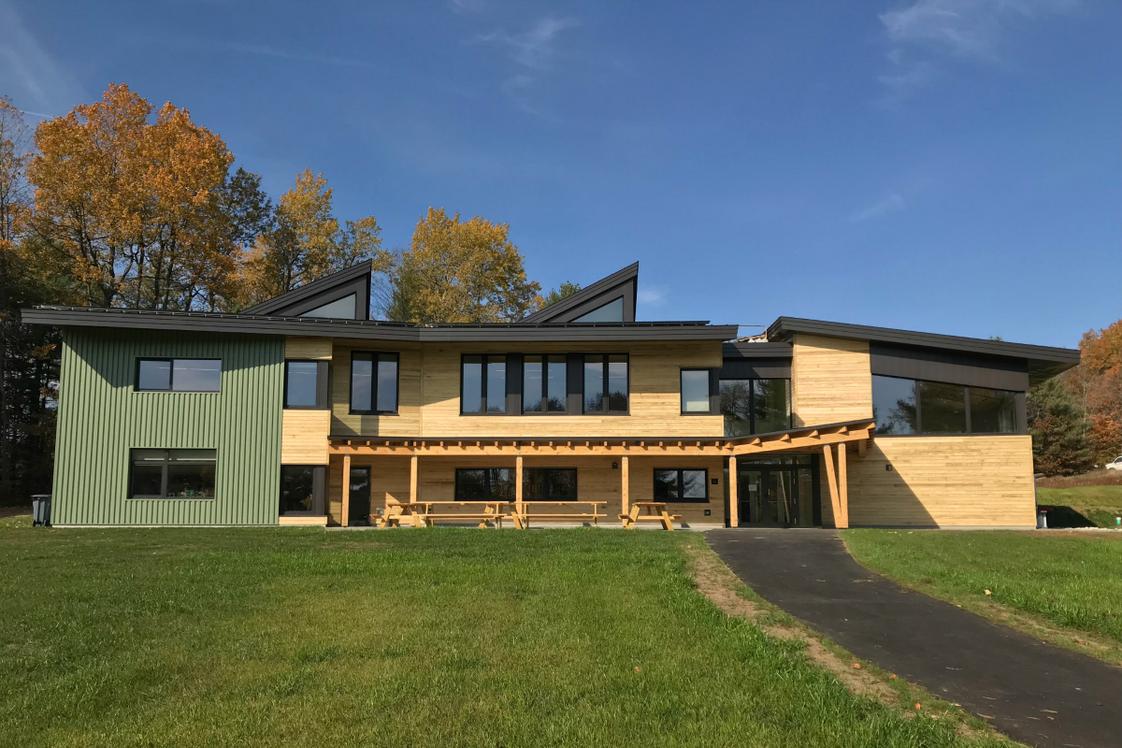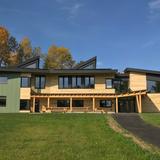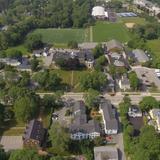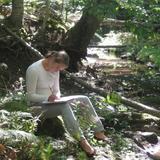Founded in 1984 as Merriconeag Waldorf School, Maine Coast Waldorf serves over 260 students from early childhood through high school. Our early childhood-12th grade campus in Freeport offers our students state-of-the-art buildings, as well as acres of outdoor classrooms and woodland trails. The mission of Maine Coast Waldorf School is to awaken the highest potential in every student by fostering clarity of thought, warmth of heart, and strength of resolve to make a difference in the world.
Quick Stats (2025)
- Top Ranked ME School
- School Type: School with Special Program Emphasis
- Grades: Prekindergarten-12
- Enrollment: 283 students
- Yearly Tuition: $21,800
- Acceptance rate: 75%
- Average class size: 19 students
- Application Deadline: Feb. 8 / rolling
- Source: Verified school update
Top Rankings
Maine Coast Waldorf School ranks among the top 20% of private schools in Maine for:
Category
Attribute
Student Body
School Overview
School Type
School Membership(s)School Assoc.
Religious Affiliation
Grades Offered
Grades Prekindergarten-12
ADD/ADHD Support
Yes
Learning Difference Programs
Yes
Learning Programs Supported
mild learning differences
Year Founded
1984
Summer School Offered
Yes
Summer Program Details
Student Body
Total Students
283 students
Student Body Type
Co-ed
% Students of Color
8%
State avg.: 16%
Students by Grade
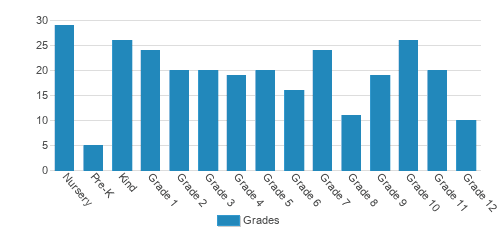
Academics and Faculty
Total Classroom Teachers
32 teachers
Student : Teacher Ratio
9:1
National avg.: 13:1
Average Class Size
19 students
List of Courses Offered
Matriculation DataMatric. Data
Classroom Dress Code
Casual
Tuition and Acceptance Rate
Admission Deadline
Feb. 8 / rolling
Yearly Tuition Cost
$21,800
Tuition Notes
Nursery starts at $4,900
Kindergarten starts at $10,150
Grades 1-5: $19,215
Grades 6-8: $20,395
Grades 9-12: $23,565
Summer Program Cost Notes
Acceptance Rate
75%
National avg.: 85%
Admissions Director
Lyn Baird
Admissions Associate
Amy Kessler
Sports
Total Sports Offered
3 sports
Extracurriculars
Total ExtracurricularsTotal Extra-curric.
7 extracurriculars
ExtracurricularsExtra-curric.
Club or Organization:
Model U.N., One Act Play, Robotics, School Newspaper, Social Inclusion Committee, Student Council, Yearbook
Model U.N., One Act Play, Robotics, School Newspaper, Social Inclusion Committee, Student Council, Yearbook
School Notes
- Early Childhood
- Waldorf education celebrates and builds upon the natural wonder, curiosity, and imagination of young children, nurturing students we look forward to knowing for years to come. Young children need time to explore and experiment in a safe environment with responsive adults. This feeling of safety and connection is what allows children to have fun and open up to new discoveries. Through close listening and observation, our teachers come to understand the unique interests, needs, and personality of each child.
- Days in our early childhood programs have a rhythm of structured and unstructured activities that feed developing minds and bodies. At the same time, these activities nourish the social and emotional needs of children making their first friends and discovering independence. Free play, practical work, song and story offer multisensory experiences and build foundational skills for mathematics, sciences and language. Cooking, gardening, movement and outdoor exploration create opportunities to count, classify, measure and observe nature, leading to a genuine curiosity for learning and wonder. All of these opportunities help the children establish a healthy, balanced foundation for life.
- For our youngest children we cultivate a beautiful, harmonious environment that encourages learning through doing, engages motor skills, evokes wonder, and gives young children the freedom to follow their natural curiosity. In our experience, this is a path that creates life-long learners.
- Grades 1-8
- The grade school years are a thrilling time of discovery. As their sense of self evolves, children develop more dynamic understanding and abilities. We design our curriculum to support children through the gradual transformation of their consciousness as it shifts from a pictorial to a conceptual focus, with all of the social, emotional, intellectual, and physical complexity that entails. A remarkable phenomenon happens at our school: because the culture engages the whole child, from the senses to the heart and the mind, students are excited to go to school each morning. They're excited about learning.
- Students learn through "block teaching," focusing on a single subject for several weeks to enhance concentration, engagement, and retention of material. Immersion gives children the space and time to draw powerful connections between new concepts and more familiar subjects. After the morning academic work comes the continuing skills work in English, mathematics and foreign languages, as well as the artistic, practical, and movement classes. All of these activities-such as woodworking, eurythmy, and performing arts-promote flexible thinking,self-awareness and the capacity to understand multiple perspectives. The ability to identify and inhabit other viewpoints is not only an important component of empathy, but an increasingly valuable skill in a global society.
- Along the way, our faculty are important touchstones for every student, providing security and continuity in the passage from childhood to adolescence. Our teachers advance with one class of students through the grades, allowing them to develop a deep understanding of each individual`s character, learning style, life experiences, and interests. This design allows teacher to dynamically respond to the needs of each student and of the class, both in the moment and through the years.
- At Maine Coast Waldorf, we also recognize the important learning that comes from struggles. We all hit stumbling blocks in our studies; every student finds that there are some subjects and skills that come more easily than others. Our teachers help students develop strategies to work through their harder endeavors and keep larger goals in mind. The recognition and awareness that this is a natural course of learning helps students persevere, develop resilience, and gain confidence in their ability to meet new challenges. And through practice-in the arts, handcrafts, and physical activities-students come to see that they can rely on themselves to accomplish anything with time and focus. This important realizationthen transfers to new challenges. While intrinsic motivation can`t be taught, we strive to create the conditions for students to find it within themselves, becoming lifelong learners in the process.
- High School
- How well do today`s schools educate for tomorrow`s world? At Maine Coast Waldorf School we go beyond imparting knowledge and skills; we build capacities for self-reliance, independent thinking, creativity, and empathy. These qualitiesare inherent to our approach.
- By high school, students are asking questions that have complex answers, about themselves, about their world, and about knowledge itself. A Waldorf education serves the questioning quality of teenage years well; students draw on our rich interdisciplinary studies to find multiple ways of knowing, thinking, and being to find new connections to themselves and the world. Students discover mathematical principles underlying their study of poetry and music; they consider a line of Emily Dickinson`s poetry in the light of Einstein`s Theory of Relativity; they make Aztec-inspired clay masks as they explore the encounter between the Old and New Worlds in 1492. The work is demanding, which is part of what makes it so rewarding.
- Our small size, deep relationships, and culture of openness allow our teachers to conduct college seminar-style classes in a high school setting. For our teachers, writing college recommendations comes effortlessly because they know each student on multiple levels: as a learner, a creator, a community member, and an individual. We often hear that recommendations from our teachers are striking in their depth and richness, a noteworthy reflection in that the teacher recommendation is an increasingly important way to distinguish students in a highly competitive landscape.
- College Admissions counselors recognize that Waldorf students come to college with exceptional problem-solving skills and the curiosity to find new problems to solve. Working for the experience rather than the grade, connecting with others, and knowing yourself as a learner are all crucial to success in collegeand in life. Although MCWS students are diverse, these are traits they share by graduation day.
- For students who have grown up in Waldorf schools, the high school years complete a circle: the fairy tales that nourish first graders also develop the imaginative faculties high school students rely upon when they delve into the more adult tales of Gilgamesh, Odysseus, Hamlet and Faust. Simple form drawings that second graders practice transform into explorations regarding the nature of infinity in eleventh grade projective geometry. The French and German songs they learn in the elementary school often lead to a term abroad at age 16 or 17 in Switzerland or Germany or France.
- For students new to Waldorf, Maine Coast offers a welcoming environment with personal support, attention, and a rangeof activities for students to find new strengths and interests. They are also not alone in their transition. Approximately 15% of our high school students join us from other educational settings.
Source: Verified school update
Frequently Asked Questions
How much does Maine Coast Waldorf School cost?
Maine Coast Waldorf School's tuition is approximately $21,800 for private students.
What is the acceptance rate of Maine Coast Waldorf School?
The acceptance rate of Maine Coast Waldorf School is 75%, which is equal to the national average of 75%.
Does Maine Coast Waldorf School offer a summer program?
Yes, Maine Coast Waldorf School offers a summer program. Visit their summer school page for more information.
What sports does Maine Coast Waldorf School offer?
Maine Coast Waldorf School offers 3 interscholastic sports: Cross Country, Nordic Skiing and Ultimate Frisbee.
What is Maine Coast Waldorf School's ranking?
Maine Coast Waldorf School ranks among the top 20% of private schools in Maine for: Largest student body.
When is the application deadline for Maine Coast Waldorf School?
The application deadline for Maine Coast Waldorf School is Feb. 8 / rolling (applications are due on Feb. 8 but additional applications are reviewed year-round as space permits ).
School Reviews
5 10/7/2018
My children have been in a Waldorf school since they were under 2 years and change. We moved to Maine specifically for this school, so they could have a Waldorf education through high school. Their education has been nothing short of fabulous. It integrates a social education with an academic education and has fostered in my children a sincere love of learning. I highly recommend Maine Coast Waldorf School to anyone who is interested in a robust and deep education experience for their child, be it in the Family Program (birth - 3 years), early childhood, primary school, middle school, or high school. This is education for life!
Endorse Maine Coast Waldorf School. Endorsements should be a few sentences in length. Please include any comments on:
- Quality of academic programs, teachers, and facilities
- Availability of music, art, sports and other extracurricular activities
- Academic or athletic awards
Recent Articles

A Parent's Guide To Understanding High School Teaching Methods
This comprehensive guide helps parents navigate the various teaching methods used in today's high school classrooms. By understanding these approaches, you'll be better equipped to support your teen's learning journey, communicate effectively with teachers, and create a complementary learning environment at home.

February 08, 2025
Social Emotional Learning: Education's Hidden SymphonyA musician's perspective on Social Emotional Learning reveals how this educational framework orchestrates success through five essential emotional competencies.

January 24, 2025
A Roadmap For Starting A Private SchoolUse this roadmap as a set of talking points with your trusted mentors and professionals to start the private school of your dreams. You're not alone. Over the years, hundreds of folks like you have had the same dream. From Quintilian to Maria Montessori to Lucy Madeira Wing, visionary educators have established schools to teach according to their beliefs and methodologies.

